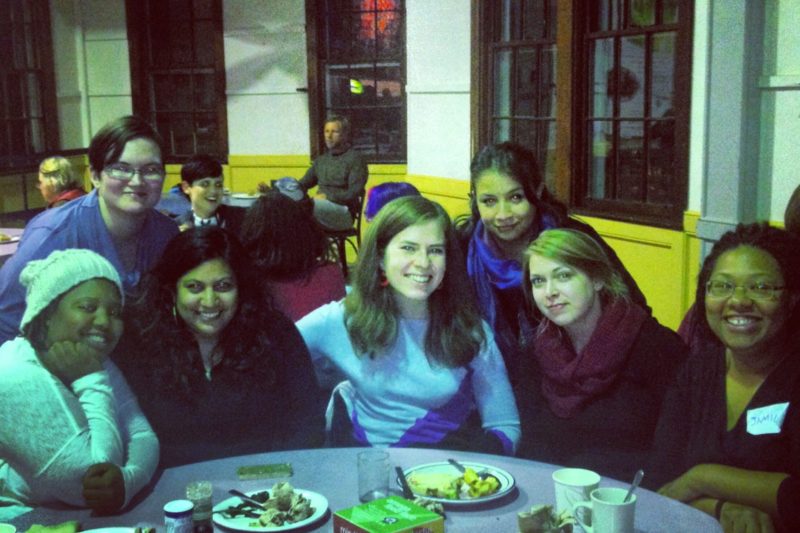Self-Care Is Not Selfish
Many feminist activists are no longer content with having a martyrdom complex, which almost makes it a competition to see who has sacrificed more for the cause.

Feminism, activism, and self-care are not words that normally go together. But for me and 19 other activists and feminist-aligned thinkers, that changed this week when we attended the first #femfuture retreat at the Omega Institute in Rhinecliff, New York, where we gathered for a few days of rest, meditation, yoga, and brainstorming on what makes for a more sustainable feminist movement.
The key takeaway for me and others was that the notion of self-care being selfish is woefully misguided and unproductive. No longer is deprivation and sacrifice a source of pride; the high rate of feminist and community organizer burnout is proof that the status quo isn’t working, and young up-and-coming activists are looking for a new blueprint to live a healthier and more fulfilling life first, in order to bring more energy and vibrancy to their work on the ground and online.
Not everyone defines self-care the same way, but everyone left the weekend in agreement that self-care must be a priority, and one’s self—emotionally, spiritually, and, yes, even financially—must take precedent in order for the feminist movement to have long-term, significant impact on the world around us.
“The vision going into the retreat was about creating a sense of community that was built on deep listening and ritualizing togetherness,” said feminist media activist Jamia Wilson, who co-organized the retreat with blogger and online strategist Vanessa Valenti. “It was also about taking a deep dive into questions and exploring ideas about what community self-care might mean for feminism, specifically online feminism.” The #femfuture white paper tackled many of these same concerns, and this first and hopefully annual retreat was a manifestation of that vision.
“The goal is to move towards a culture of care in feminism and away from a culture of deprivation,” said Wilson. “We need a sustainable model for online feminists and activists. This retreat is a point of departure. It’s not the be-all end-all.”
“I have learned that self-care is political warfare,” Jamila Bey, a feminist radio show host, told me at the conclusion of the retreat. “It’s about maintaining the machine of me so I that I am in peak physical condition.”
Dior Vargas, a board member of the Third Way Foundation, said, “self-care is making sure that I’m OK and taking care of myself. I can’t do anything for anyone else if I’m not taking care of myself.”
While many in attendance shared the sentiment that self-care is about putting yourself in a healthier place so you can do better work assisting the marginalized, some attendees, like Everyday Feminism Editor Melissa Fabello, said, “Sometimes self-care needs to be even more self-centered. I need to take care of myself so that I can take care of myself. I am deserving of care. I am deserving of preservation, just because I exist in a world that is difficult. self-care doesn’t always have to have the goal in mind that what I am doing for myself is only for the purpose of taking care of other people.”
This concept is often difficult for women. “The image we often see is women playing the role of caretakers,” activist and journalist Eileen McFarland told me as the retreat was winding down. “There is a lot of honor in that, whether you are a parent or caring for an elderly relative, but it’s also important to say that caring for self is almost more revolutionary than planning a march or a rally. It doesn’t sound revolutionary, but it’s almost a series of everyday revolutionary acts that work to create new culture of care.”
That culture of care will allow feminist activists, both online and on the ground, to be more strategic and less reactionary, and to make even more space for people who are less privileged. Many feminist activists are no longer content with having a martyrdom complex, which almost makes it a competition to see who has sacrificed more for the cause.
By prioritizing mind, body, and spirit, each individual piece of the larger movement is stronger. And because many come into their activism as a result of trauma or myriad challenging life experiences, self-care allows them to heal. As fully healed individuals, they are better able to tackle the complex and difficult work that is online feminist activism with full hearts, as opposed tattered souls in need of constant rejuvenation.
